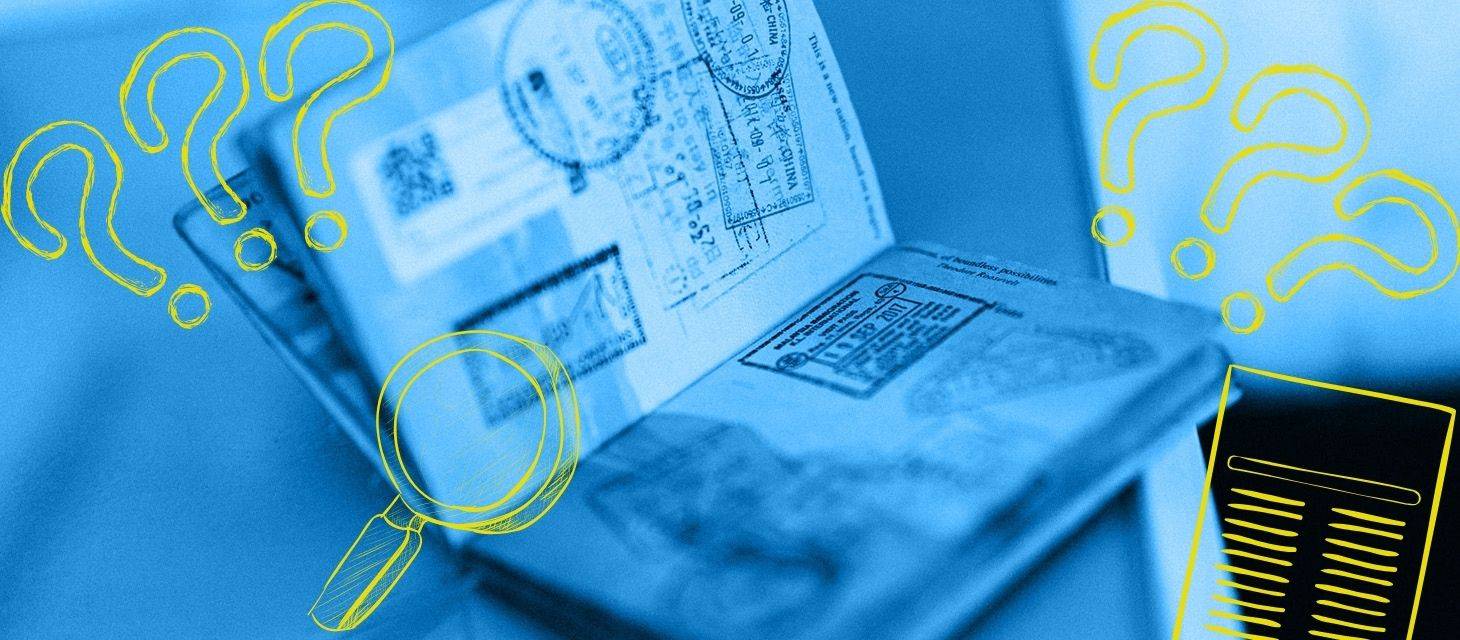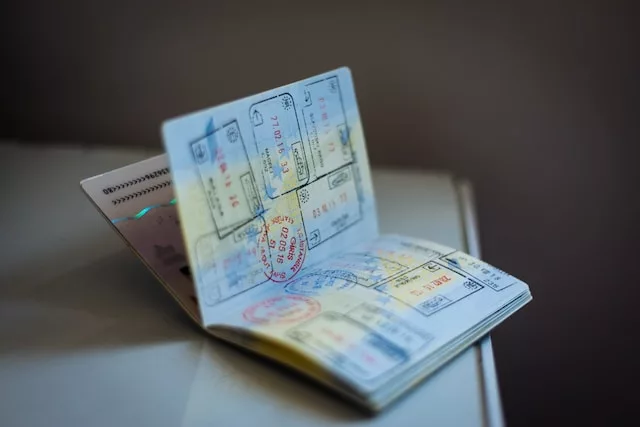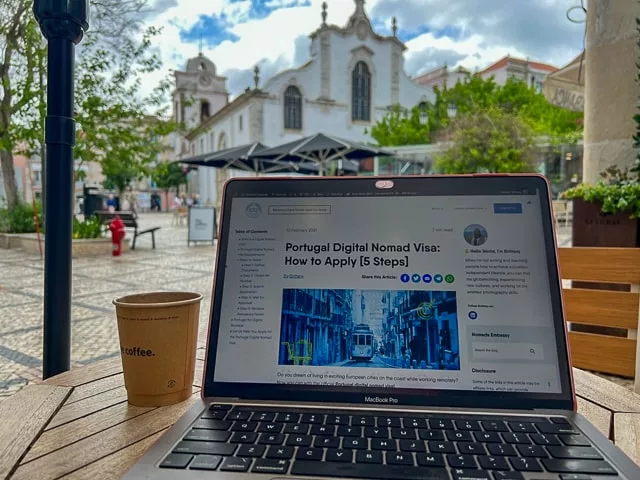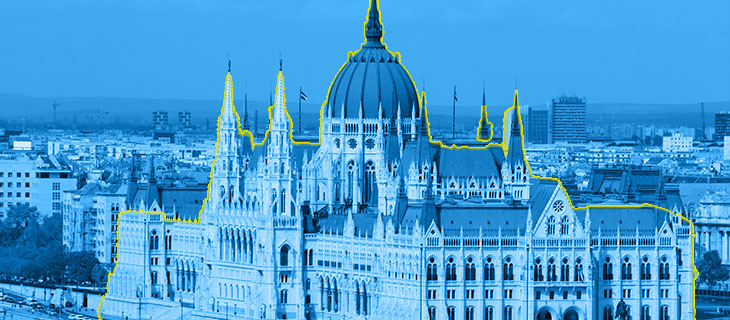How to Choose a Digital Nomad Visa: 9 Things to Consider

You’ve heard in the news recently about many countries introducing digital nomad visas allowing remote workers to live abroad for an extended period of time. But with so many options, you’re wondering how to choose a digital nomad visa that’s right for your lifestyle.
With so many different opportunities, all with their own rules and regulations, you may be lost when it comes to choosing the right digital nomad visa for you.
I get it; the research you have to do to find out about these digital nomad visas is extensive and tiring. From trying to navigate government websites and travel blogs, you may feel like your mind is scrambled with all different kinds of information.
Luckily, you’ve stumbled across Nomads Embassy, where we write simply about the digital nomad visas available and make it easier for you to choose and apply for one.
In this article, you’ll learn what to consider and look for when you choose a digital nomad visa. From income requirements to the application process, after reading this you’ll have a better understanding of what it means to find the right digital nomad visa.

How Many Digital Nomad Visas Are There?
There are over 30 digital nomad visas available worldwide.
You’ll find digital nomad visas across Europe, South America, Asia, and the Caribbean.
Some of the most popular digital nomad visas include Portugal, Croatia, Malta, Brazil, Spain, Malaysia, and Greece.
More countries are starting to introduce their plans to offer digital nomad visas to boost their economies and welcome remote workers.
You can see the entire list of digital nomad visas (which is updated periodically) here.

What to Consider When Choosing a Digital Nomad Visa
As you can see, there are plenty of visa options for digital nomads. But now you have to figure out how to choose a digital nomad visa that fits your lifestyle and goals.
Below are nine different factors to consider when choosing a digital nomad visa to apply for.
Income Requirements
The number one factor that will determine which digital nomad visa to choose is the income requirement.
Since each digital nomad visa is different, each has its own income standard. Sometimes it’s based on the average local annual income while others simply choose an amount.
For example, if you apply for Greece’s digital nomad visa, you must make at least 3,500€ per month.
It’s also important to note that this income must be earned through a company or client located outside of the country where you’re planning to get the visa.
Some countries, like Bermuda, don’t have an income requirement at all.
So, searching for which visas have certain minimums of what you must earn each month or have sitting in a bank account, this can help narrow down which digital nomad visa to apply for.
Processing Time
Dealing with bureaucracy in a foreign country can be difficult and overwhelming. As a digital nomad who lives a lifestyle of freedom and movement, you may not have such a long time to wait for a visa to be processed.
Some digital nomad visa programs process applications in just a few days while it can take others one to three months to process.
For example, Malta, Hungary, and Brazil typically take 30 days to process your application and notify you if it was approved or denied.
Bermuda, though, takes just five days to process it!
If you’re in a time crunch, then you may have to reconsider which digital nomad visa to apply for. But, if you can sit tight and wait for your application to process, then this shouldn’t matter too much.
Tax Obligations
Taxes, taxes, taxes – this is something that digital nomads absolutely dread because they become quite complicated when you live a fully remote lifestyle.
Of course, they are also something to consider when you choose a digital nomad visa.
Some countries with digital nomad visas actually won’t ask you to pay local taxes. So, you’ll pay taxes to either your home or tax residency country.
Many remote workers are interested in tax-free digital nomad visas to save money for a few years while they live there.
Before choosing which country to reside in short-term, you may be able to estimate the taxes you’ll have to pay using online tax calculators. However, it’s always a good idea to have a professional consultation with a knowledgeable tax accountant for your situation.
Taxes are long and difficult, so we can’t get too much into them in this article. They are definitely something you’ll want to consider when choosing the right digital nomad visa for you.
Location and Benefits
Let’s face it; one of the main reasons you want to apply for a digital nomad visa is to enjoy the experience of living abroad without worrying about overstaying your tourist visa.
You can settle down for a short period of time and really explore a destination and make it feel like home.
So, one of the things to consider when choosing a digital nomad visa is the location and benefits of being in that country.
For example, if you receive a digital nomad visa within the Schengen Area, such as Portugal, Estonia, or Hungary, you can travel within the bloc visa-free! This is excellent news for those digital nomads who still want to explore a bit while having a home base.
You’ll also want to consider the climate, things to do, culture, and overall quality of life in the destination as well.
Length of Stay
A digital nomad visa is more like a temporary resident permit. They often don’t lead to permanent residency or citizenship, which is important to note if that is your ultimate goal.
Most visas allow you to stay for one year. Some even allow you to renew it once or twice.
However, Croatia’s digital nomad visa is not renewable after one year. You must leave the country for at least 90 days. Then you may come back and re-apply for the visa again.
If you are looking to settle down somewhere for more than one year, then you’ll want to choose a digital nomad visa that is renewable.
Application Process
Every country has its own processes, regulations, and way of doing things. Some digital nomad visa application processes can be quite time-consuming and burdensome while others are quick and easy.
You may also have to be in your home country to apply for the visa. Or you must have at least the country’s embassy or consulate nearby.
For example, for Brazil or Portugal’s digital nomad visa, you must visit a local embassy or consulate to apply.
However, to apply for Hungary or Malta’s digital nomad visa, everything is done right online.
Depending on where you are in the world, you may opt for an application process that is a bit easier, especially if you don’t have a nearby embassy.
Cost of Living
One of the first things I search before choosing a destination as a digital nomad is the cost of living. I make sure that my income is in line with how much I can expect to spend – or even save – while I’m in that destination.
The same goes for choosing a digital nomad visa. Even if you meet the income requirement, check out the cost of living in the country.
Some digital nomads’ goal is to stay in a more affordable destination so they can either save money or get more bang for their buck.
Consider your financial goals and situation and the type of lifestyle you want to live. This could be a deciding factor of where you apply for a digital nomad visa.
Family Members
It isn’t uncommon to find an entire digital nomad family or couple nowadays. So, if you plan to bring your spouse and children with you abroad, make sure the digital nomad visa you wish to apply for allows it.
Most visas increase the income requirement if you have a family to support. The process is pretty much the same and your family members won’t have to file separate applications.
However, with Hungary’s digital nomad visa, family members are not entitled to receive the visa. They must apply separately with their own information and income.
Special Requirements
Every digital nomad visa is different. Some have specific requirements that you must meet in order to be eligible for them.
For example, Norway and the Czech Republic’s digital nomad visa states that you must be a freelancer. You must also have clients in the country where you wish to hold the visa.
Be sure to research whether or not the digital nomad visa you want requires you to meet these special standards.
We’ve seen many people want a Czech Republic visa. However, they were employed by a foreign country or didn’t have any client relationships in the country.

Finding the Right Digital Nomad Visa for You
Still questioning how to choose a digital nomad visa?
Don’t worry, we’re here to help!
Nomads Embassy has partnered with professional immigration attorneys who manage digital nomad visa applications worldwide. If you aren’t sure if the digital nomad visa you want is right for you, schedule a consultation to have all of your questions answered during a 30-minute Digital Nomad Visa Exploration call with one of our experts.
Or request our free digital nomad visa eligibility assessment and see which visas you’re qualified to apply for today!
To stay up to date with the latest digital nomad news and upcoming visas, make sure to join our newsletter.
Frequently Asked Questions
We’ve covered a lot of information about what to consider when choosing a digital nomad visa. But you may still have some questions. Below are answers to the most commonly asked questions on the topic.
What insurance requirements are common for digital nomad visas?
Most digital nomad visas require applicants to have an international health insurance policy that covers their medical expenses in the country for the duration of their stay. Check out our recommended best digital nomad insurance companies now.
Are there any specific fields or industries preferred for digital nomad visa applicants?
Some digital nomad visas, such as the Czech Republic and Malaysia require applicants to work in specific industries, such as IT, STEM, or software development.
Can digital nomad visas lead to permanent residency or citizenship in any countries?
Yes, some digital nomad visas lead to permanent residency and even citizenship after living there full-time for a certain number of years.
How do digital nomad visas impact tax obligations in the home country of the applicant?
Holding a digital nomad visa can affect tax status, potentially requiring tax payments in the host country, with implications for taxes in the home country as well. It’s best to speak with a specialized tax accountant about your personal tax situation.
You may also enjoy

Before applying for a digital nomad visa, it is super important to understand everything about it—from the eligibility requirements to the application process to the implications of getting approval. We’ve…
by Brittany

It’s no secret that Porto is the second most popular city in Portugal for digital nomads. With a lively international community, beautiful city, and digital nomad-friendly cafes, remote workers are…
by Brittany

The Portugal digital nomad visa is one of the most popular and beneficial digital nomad visas for remote workers who wish to relocate to Europe. One of these attractive benefits…
by Brittany
